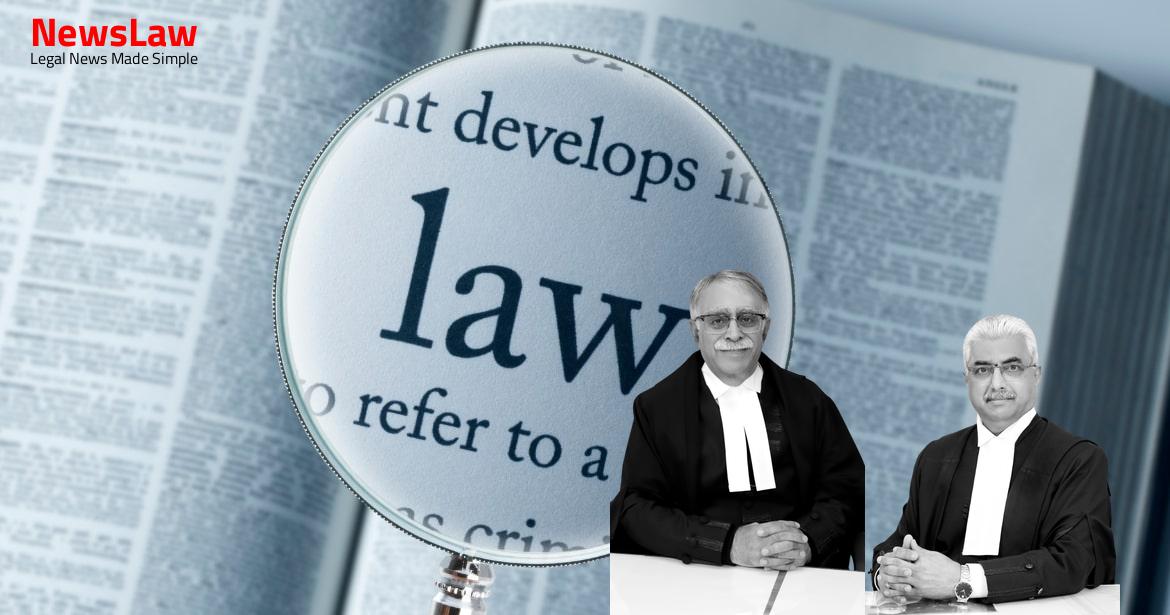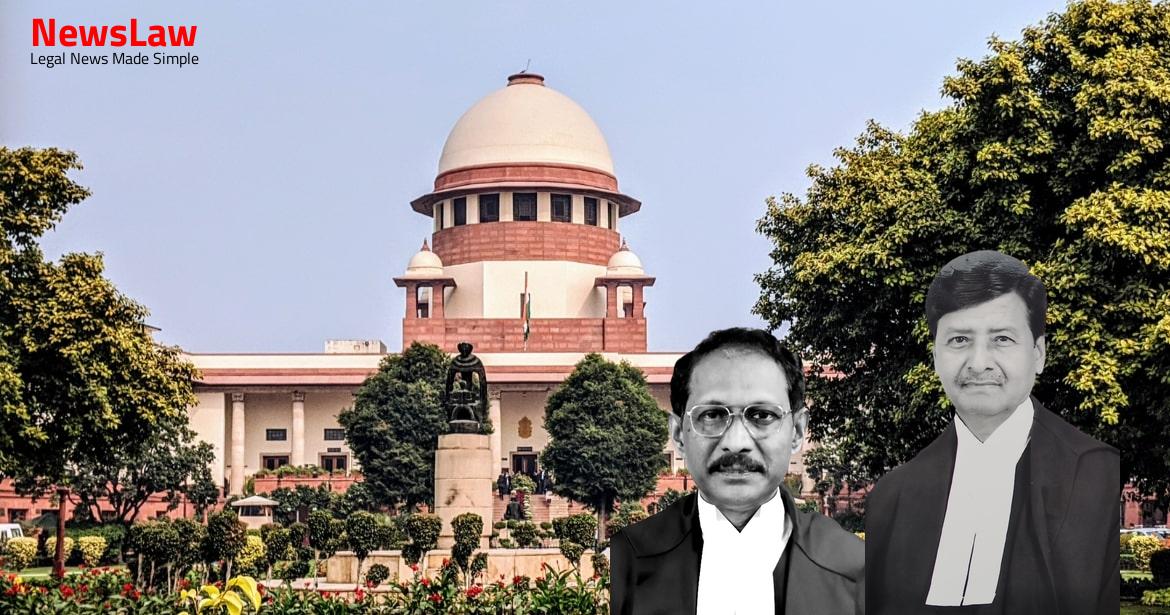Explore a key legal case where the court delves into the interpretation of a lease agreement and the obligation of compulsory registration under the law. The case highlights the significance of clarity in lease terms and the impact it has on the nature of the tenancy. Learn more about the court’s examination of the agreement’s provisions and the application of legal principles to determine the validity of the lease document. Stay tuned for a detailed analysis of the court’s decision.
Facts
- The respondent-tenant failed to appear despite being served.
- An agreement/rent deed was executed on 27.07.1993 by the respondent-tenant, agreeing to pay Rs.2,000 per month and an increase of 10% yearly.
- An application under Section 13 of the East Punjab Urban Rent Restriction Act, 1949 was filed by the landlord for eviction and arrears of rent.
- The landlord claimed rent arrears from January 2004 to February 2005.
- The Rent Controller held the rent deed as proved but noted it needed to be compulsorily registered under the Registration Act, 1908.
- The Rent Controller also found the tenant liable for house tax arrears from 1999 to 2005.
- The Appellate Court accepted the rent increase clause but rejected the claim of the tenant regarding the monthly rent amount.
- The Appellate Court upheld the eviction order by the Rent Controller.
- The High Court’s decision to dismiss the revision was based on the finding of the Appellate Court regarding the rent note Exh.A-1 being compulsorily registrable.
Also Read: Enhancing Compensation and Modifying Sentences: A Legal Analysis
Issue
- The second issue to be considered is whether the Appellate Court could have set aside the decree of eviction without recording a finding that there was no default on the part of the tenant in payment of rent and house tax, and whether the amount deposited by the tenant was sufficient to save him from eviction.
Also Read: Transfer of Writ Petitions for Chartered Accountants’ Tax Audit Guidelines
Arguments
- The Appellate Court set aside the Rent Controller’s order without recording a finding of default in rent payment
- The rent note dated 27.07.1993 was contested as requiring compulsory registration under Section 17(1)(d) of the Registration Act, 1908
- Appellant argues that the rent note was a valid lease document and not registrable under Section 17(1)(d)
Also Read: Analyzing Interference with Acquittal in Legal Conviction Case
Analysis
- Landlord entitled to recover house tax from respondent after paying it
- Section 17(1)(d) of the Registration Act states that registration of certain documents is compulsory
- Definition of ‘lease’ includes various types of agreements
- Documents related to property in certain districts must be registered if executed on or after specific dates
- Leases of immovable property exceeding one year require compulsory registration
- The rent note in question was signed only by the tenant and not by the landlord- appellant.
- The trial court found that the appellant had proved the rent note and rejected the respondent’s claim of signatures on a blank paper.
- Clause (9) of the rent note stated that the tenant was liable to pay an increased rate of 10% each year, which the court upheld.
- The rent deed did not specify a period exceeding one year, making it a tenancy-at-will after the first year.
- The rent deed did not require compulsory registration under Section 17(1)(d) as it was not for a term exceeding one year.
- The Appellate Court’s decision to allow the appeal was based on the lack of registration and not on the tenant’s liability to pay house tax.
- Clause (9) regarding a 10% rent increase was contingent on the tenancy continuing beyond one year but did not establish a tenancy for more than one year.
- The rent deed was not a lease from year to year and did not specify a duration beyond the initial term.
- The landlord reserved the right to evict the tenant for non-payment of rent or if the shop was needed, indicating a monthly tenancy rather than a yearly lease.
- The High Court noted the condition of the lease and applied Section 17(1)(d) of the Registration Act, 1908 to declare the lease as not registrable.
- In the case of Ram Kumar Das Vs. Jagdish Chandra Deo, Dhabal Deb and Another, the court applied Section 106 of the Transfer of Property Act, 1882 and mentioned the rule of construction when no period is agreed upon in a lease deed.
- The determination of the duration of a lease without an agreed period is based on the purpose and object for which the tenancy is created.
- The court referred to a case where a yearly rent must be reserved to bring a lease within the purview of Section 17 of the Registration Act.
- A case from the Allahabad High Court analyzed an agreement where the term of the lease looked indefinite but was determined not to exceed one year.
- Multiple cases were cited to emphasize the importance of the terms of the lease, including the rent amount and payment frequency, in determining the nature of the tenancy.
- The intention of the parties as reflected in the lease, especially regarding rent payment frequency, plays a crucial role in determining the nature of the tenancy, whether monthly or yearly.
- The judgment of the Appellate Court is unsustainable on the grounds provided.
Decision
- The judgment and decree of the Rent Controller directing eviction of the tenant is restored.
- No costs are awarded.
- The appeal is allowed.
Case Title: SIRI CHAND (DECEASED) THR. LRS. Vs. SURINDER SINGH (2020 INSC 431)
Case Number: C.A. No.-002617-002617 / 2020



